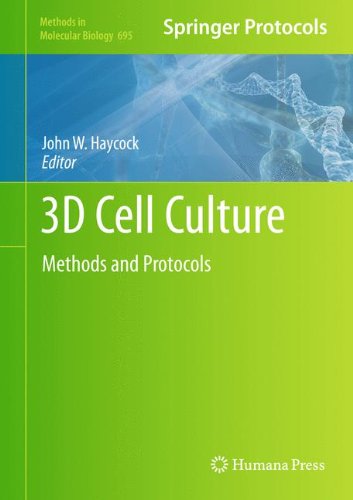

Most ebook files are in PDF format, so you can easily read them using various software such as Foxit Reader or directly on the Google Chrome browser.
Some ebook files are released by publishers in other formats such as .awz, .mobi, .epub, .fb2, etc. You may need to install specific software to read these formats on mobile/PC, such as Calibre.
Please read the tutorial at this link. https://ebooknice.com/page/post?id=faq
We offer FREE conversion to the popular formats you request; however, this may take some time. Therefore, right after payment, please email us, and we will try to provide the service as quickly as possible.
For some exceptional file formats or broken links (if any), please refrain from opening any disputes. Instead, email us first, and we will try to assist within a maximum of 6 hours.
EbookNice Team

Status:
Available4.4
33 reviewsDeveloped for a range of tissues where the culture environment takes into account the spatial organization of the cells therein, 3D cell culture models serve to bridge the gap between in vivo studies at one extreme with that of simple cell monolayers at the other. In 3D Cell Culture: Methods and Protocols, international experts describe a number of basic and applied methodologies taken from a breadth of scientific and engineering disciplines, many of which deal with direct applications of 3D culture models, most notably in the formation of tissues for clinical purpose. Beginning with an overview of the biological and materials scaffold requirements for successfully creating 3D models, the book delves into topics such as general scaffold design and fabrication techniques, models for bone, skin, cartilage, nerve, bladder, and hair follicles, and chapters on bioreactor design, imaging, and stem cells. Written in the highly successful Methods in Molecular Biology™ series format, chapters include brief introductions to their respective subjects, lists of the necessary materials, step-by-step, readily reproducible laboratory protocols, and notes on troubleshooting and avoiding known pitfalls. Authoritative and cutting-edge, 3D Cell Culture: Methods and Protocols serves as a basic manual for laboratory-based scientists who not only need to have a comprehensive range of techniques contained within a single text but also require techniques described using a standard, convenient format.